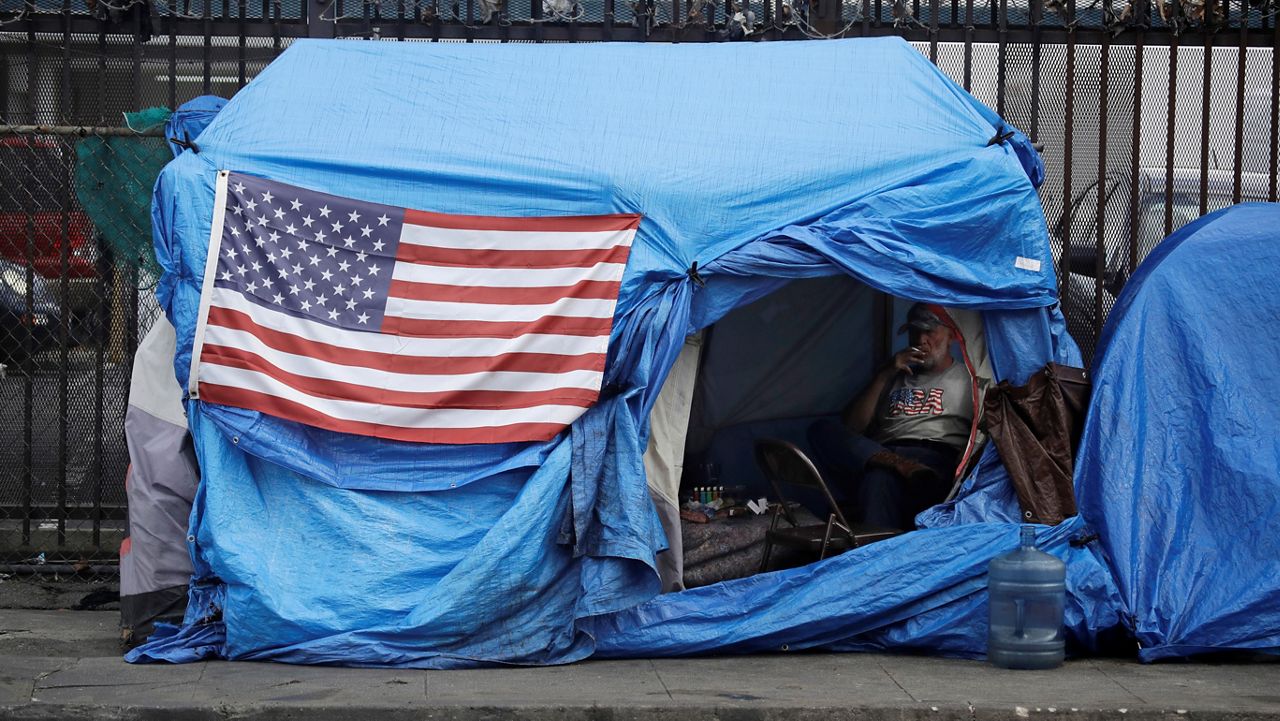LOS ANGELES (AP) — A $1.2 billion program intended to quickly build housing for Los Angeles' sprawling homeless population is moving too slowly while costs are spiking, with one project under development expected to hit as much as $837,000 for each housing unit, a city audit disclosed Wednesday.
About 1,200 units have been completed since voters approved the spending in 2016, which was then a centerpiece in a strategy intended to get thousands of people off the streets. But the tally of units built so far is "wholly inadequate" in the context of the homeless crisis, said the audit issued by city Controller Ron Galperin.
In recent years, homeless encampments have spread into virtually every neighborhood, while the population has climbed to an estimated 41,000 people. Many are drug addicted or mentally ill, and violence is commonplace.
The program "is still unable to meet the demands of the homelessness crisis," Galperin said in a letter accompanying the 31-page report. The pace of development is sluggish, he said, while the cost of each unit continues to rise — in some cases to "staggering heights."
Most of the units are studios or one-bedroom apartments. The audit found 14% of the units built exceeded $700,000 each, and one project in pre-development is estimated to cost almost $837,000 per unit.
The audit noted that higher prices for construction materials during the pandemic, including lumber, along with labor shortages could be contributing to rising costs.
In a tweet, Democratic Mayor Eric Garcetti appeared to dispute any suggestion that the program – formally known by its title on the 2016 ballot, Proposition HHH – was off track.
The program "is producing more units than promised, at a lower cost than expected," Garcetti wrote. "There are already 1,200 units online providing critical housing and services. And HHH will deliver over 10,300 units of supportive and affordable housing by 2026."
John Maceri, chief executive of the People Concern, one of LA's largest nonprofits serving the homeless, agreed with the overall finding that the city needs to build housing faster and cheaper. But he warned the program, while a step in the right direction, represents only a small fraction of the money needed to complete projects.
The solution, he said, is innovative financing, slashing red tape that slows projects and incentives for developers to aggregate funding to speed up construction. "Housing has not kept pace with the urgency of the unsheltered homelessness crisis," Maceri said.
The audit arrives at a time when homelessness is a dominant issue in the city's mayoral election, with a large field of candidates promising to do more on an issue that has placed Los Angeles in an unwelcome national spotlight. Sagging tents, rusting RVs and makeshift structures used by homeless people have become familiar sights from Hollywood to Venice Beach and even in the shadow of City Hall.
Garcetti, who was nominated last year by President Joe Biden to become ambassador to India, is in the final year of his second term. He is barred by term limits from running for re-election.
Democratic Gov. Gavin Newsom, facing re-election this year, has budgeted record sums to combat homelessness that pervades all of the state's major cities and many smaller communities as well. The state is providing roughly $12 billion on homelessness programs over two years.
The scope of the expanding problem can be seen in the city budget: When Garcetti took office in 2013, the city was spending about $10 million treating homelessness. The budget he signed last year included about $1 billion.
Still, the government's inability to clear encampments from streets, parks and sidewalks has left voters angry and frustrated. In 2019, then-President Donald Trump threatened to intercede, though he never acted on the threat. San Francisco's progressive mayor, London Breed, last month declared a state of emergency in the city's Tenderloin district after becoming fed up with the homelessness and open drug-peddling there.
In LA, the audit said the HHH project includes 8,091 housing units — most with connected services for mental health and substance abuse treatment — spread across 125 projects. About 4,200 are in construction. Other funds outside the HHH program are being used for another 2,369 units.
The audit signaled that a fresh approach — and billions more in spending — would be needed in the future.
"While future plans have not been finalized, building tens of thousands of additional units using the same model will likely cost billions of dollars and will take far too long to match the urgency of the ongoing homeless emergency," the audit concluded. It urged the city to "find ways to scale up faster and cheaper projects."



